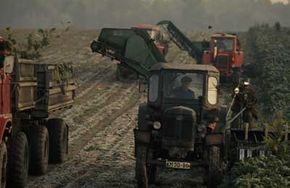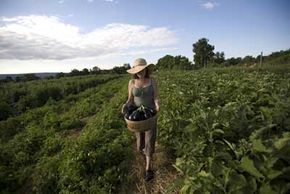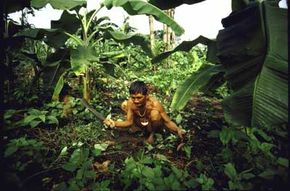Have you ever imagined what human habitation of another planet might be like? Perhaps you envision clusters of white, cylindrical modules under the harsh Martian sun, or maybe you dream of forest-filled domes floating high above the Venusian atmosphere. Whether fueled by NASA schematics or science fiction, most visions of planetary exploration involve, by necessity, closed environments shut off from the surrounding world and supported mostly by imported supplies.
It makes sense to live this way on Mars, where the natural environment doesn't support human life. There, scientists would have to artificially sustain any Earth life. But why live this way in one of Earth's own temperate zones?
Advertisement
You probably won't notice anyone living in the hull of a spaceship in your neighborhood. But you might find subtler examples of agriculture and landscaping that de-emphasize the natural ecosystem and establishes some other order in its place. Would that finely manicured front yard look so nice without constant gardening and irrigation? Do those acres of corn grow naturally or do they depend on gas-powered machines and an input of fertilizers, soil and pesticides?
More Landscaping
- Urban Landscape Design
- Landscaping Principles
- Green Landscaping
- TreeHugger: Water Cycle
- Treehugger: Vericomposting
These farms and lawns are unsustainable, meaning that they regularly deplete themselves of resources and depend on the import of more resources to survive. Earth is home to countless, thriving ecosystems, where nutrients and energy constantly move in self-sustaining, permanent cycles. Instead of promoting unsustainable farming systems, why don't we just stick with what works?
This is where permaculture (permanent agriculture) comes into play. It centers on the theory that human habitats and food production systems don't have to artificially exist outside of natural ecological systems. This is a holistic approach, meaning that it views humans as a part of the larger ecological system and not as something standing separately.
In this article, we'll look at the origins of permaculture, its various applications and some examples of how permaculture allows for a more sustainable, environmentally-friendly way of life.
Advertisement


